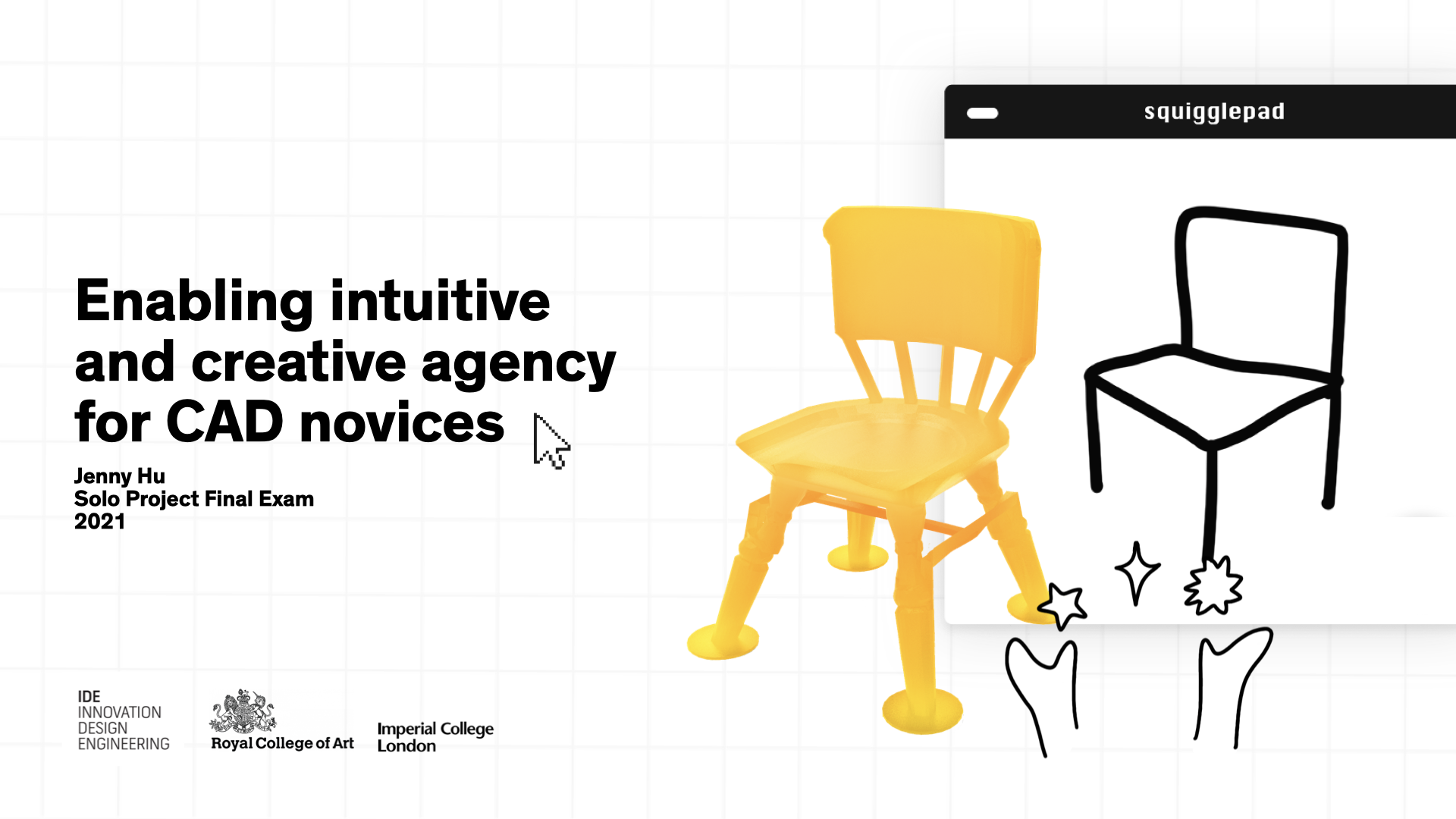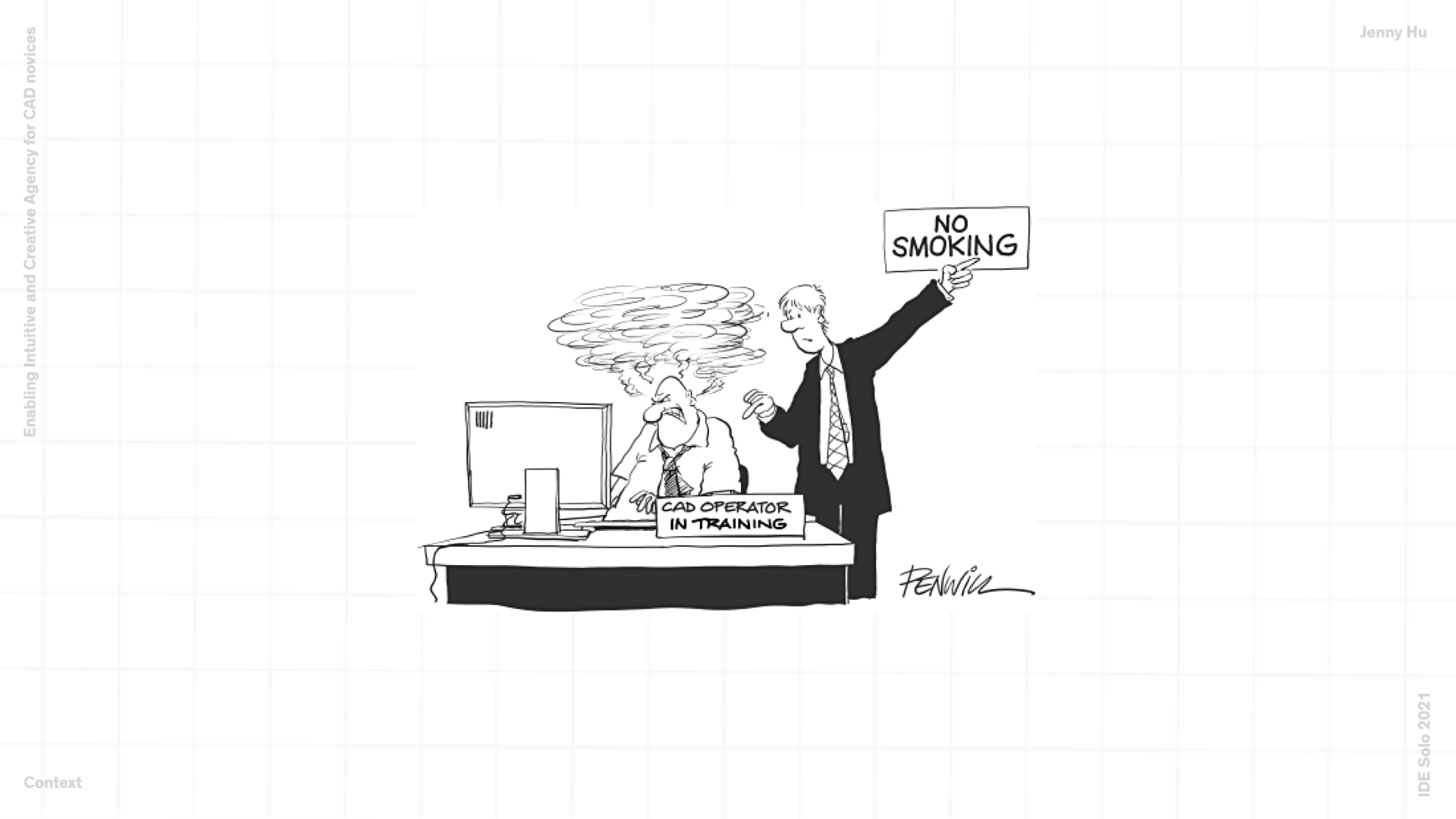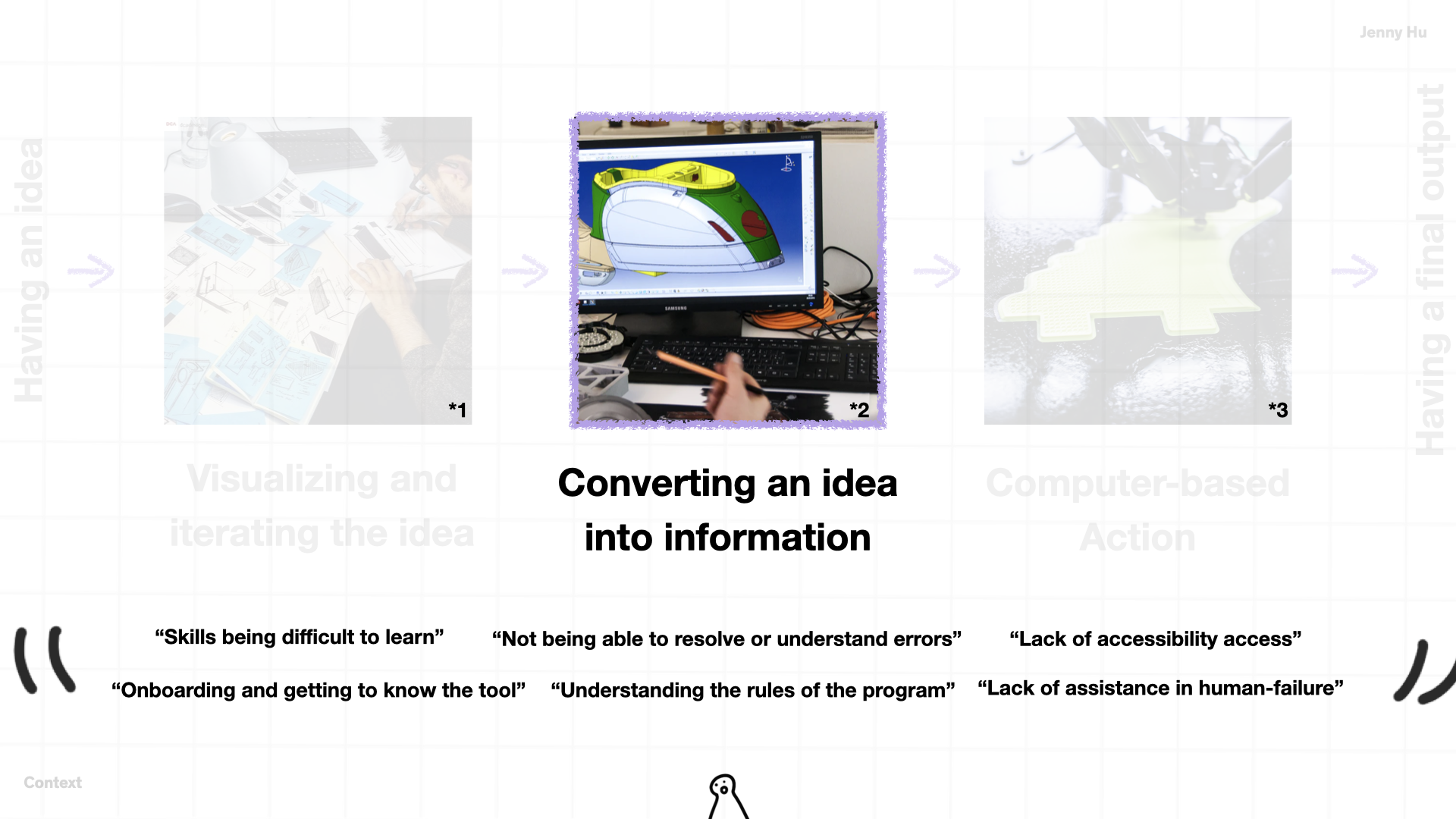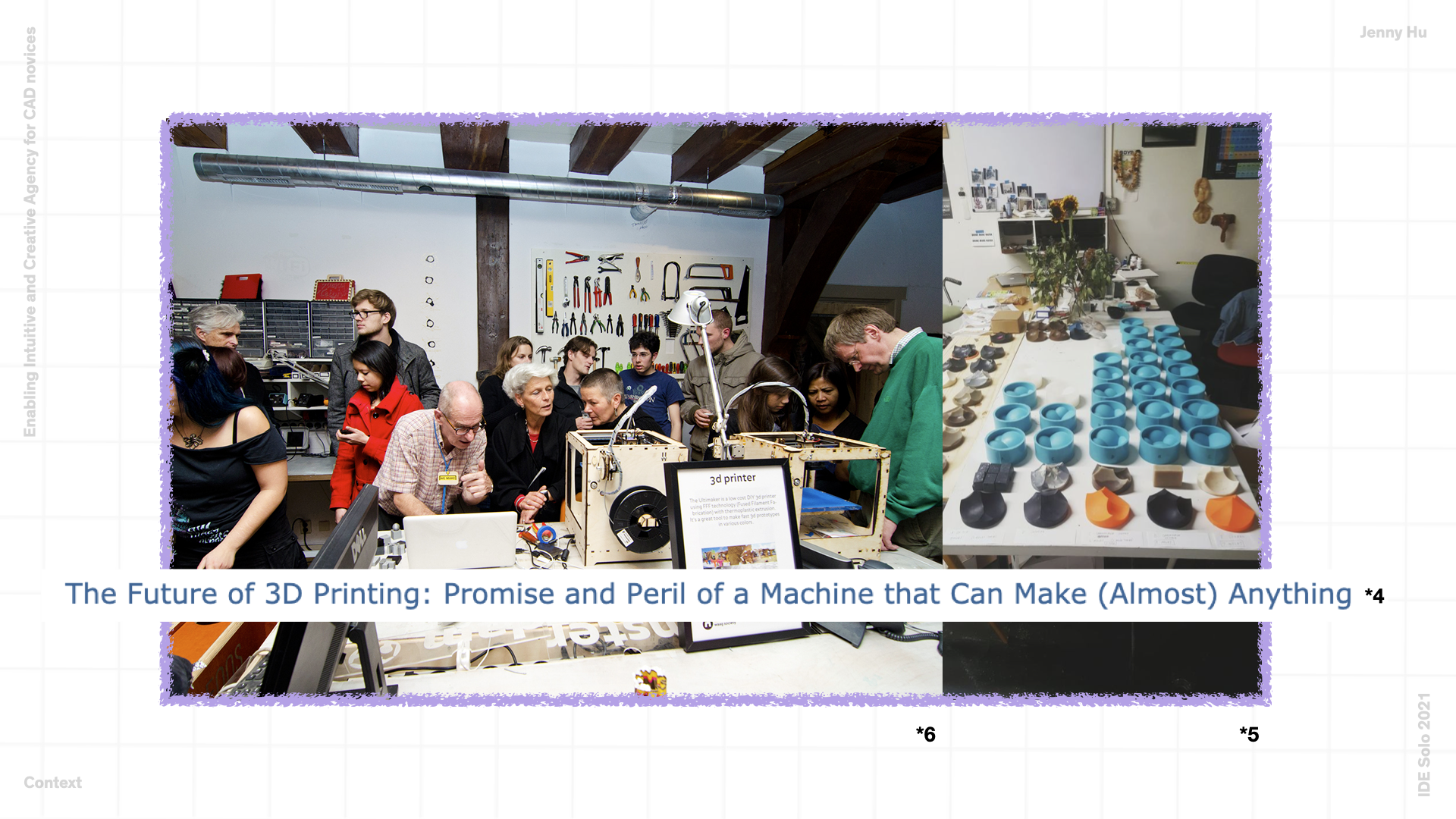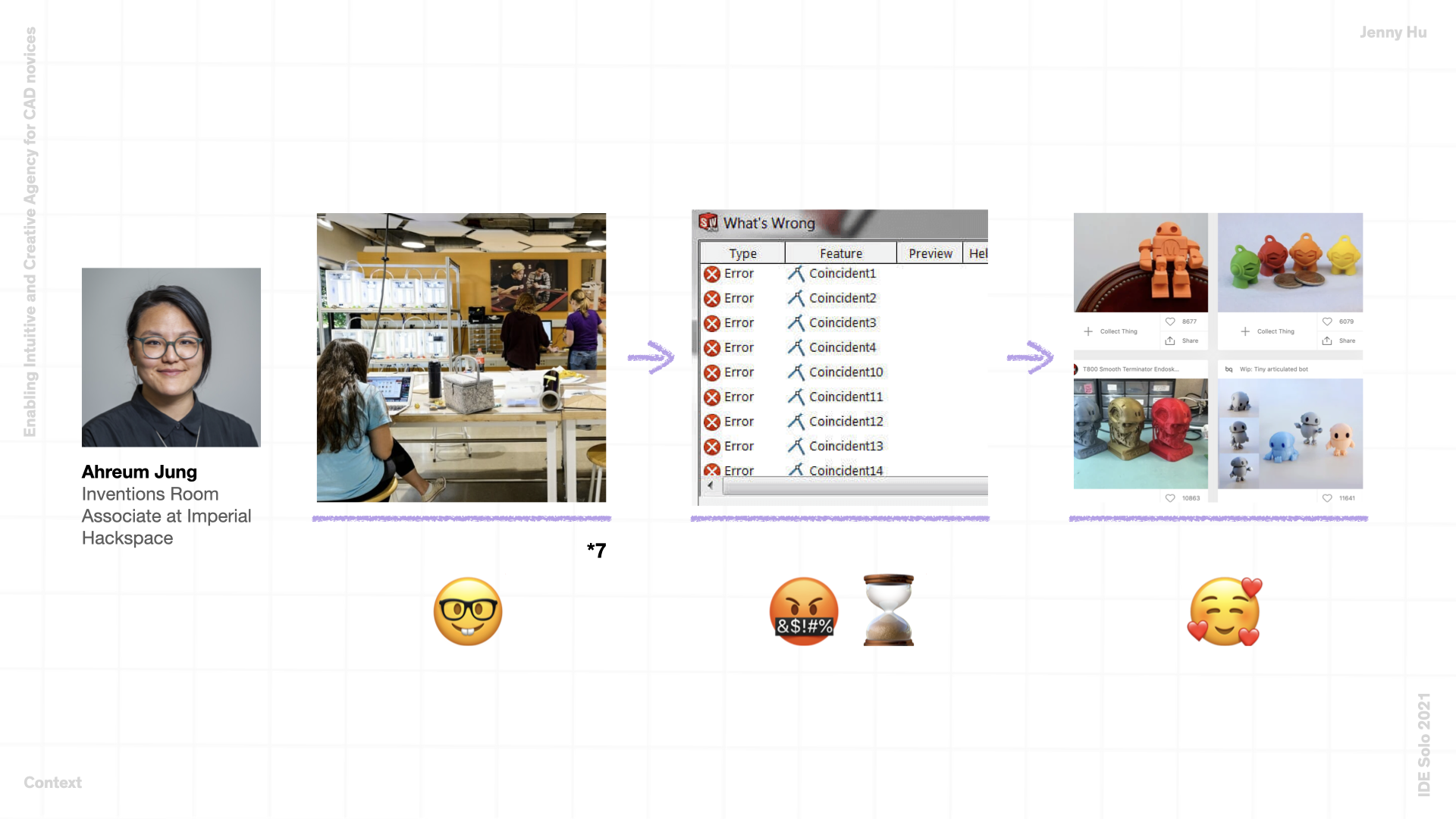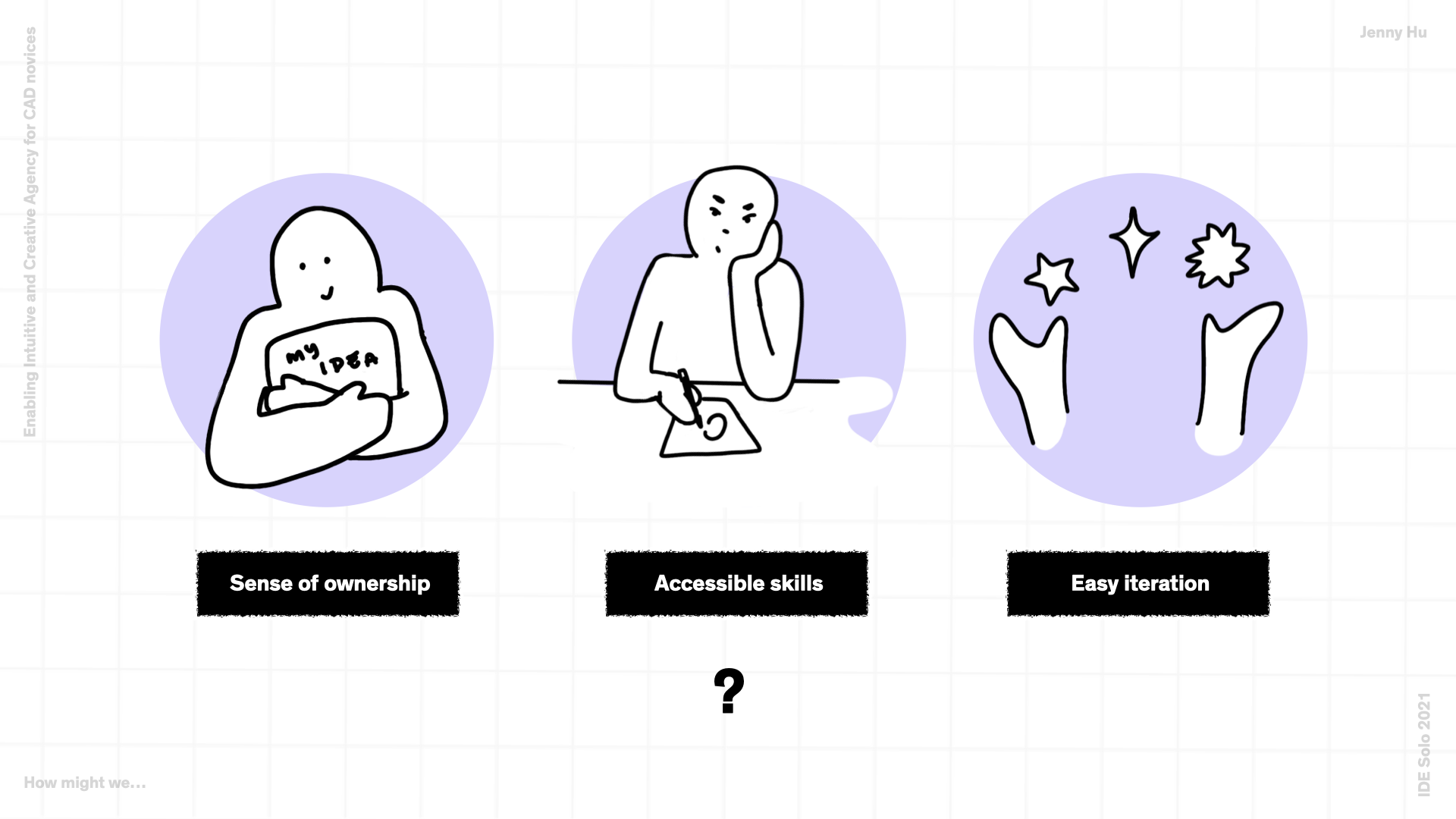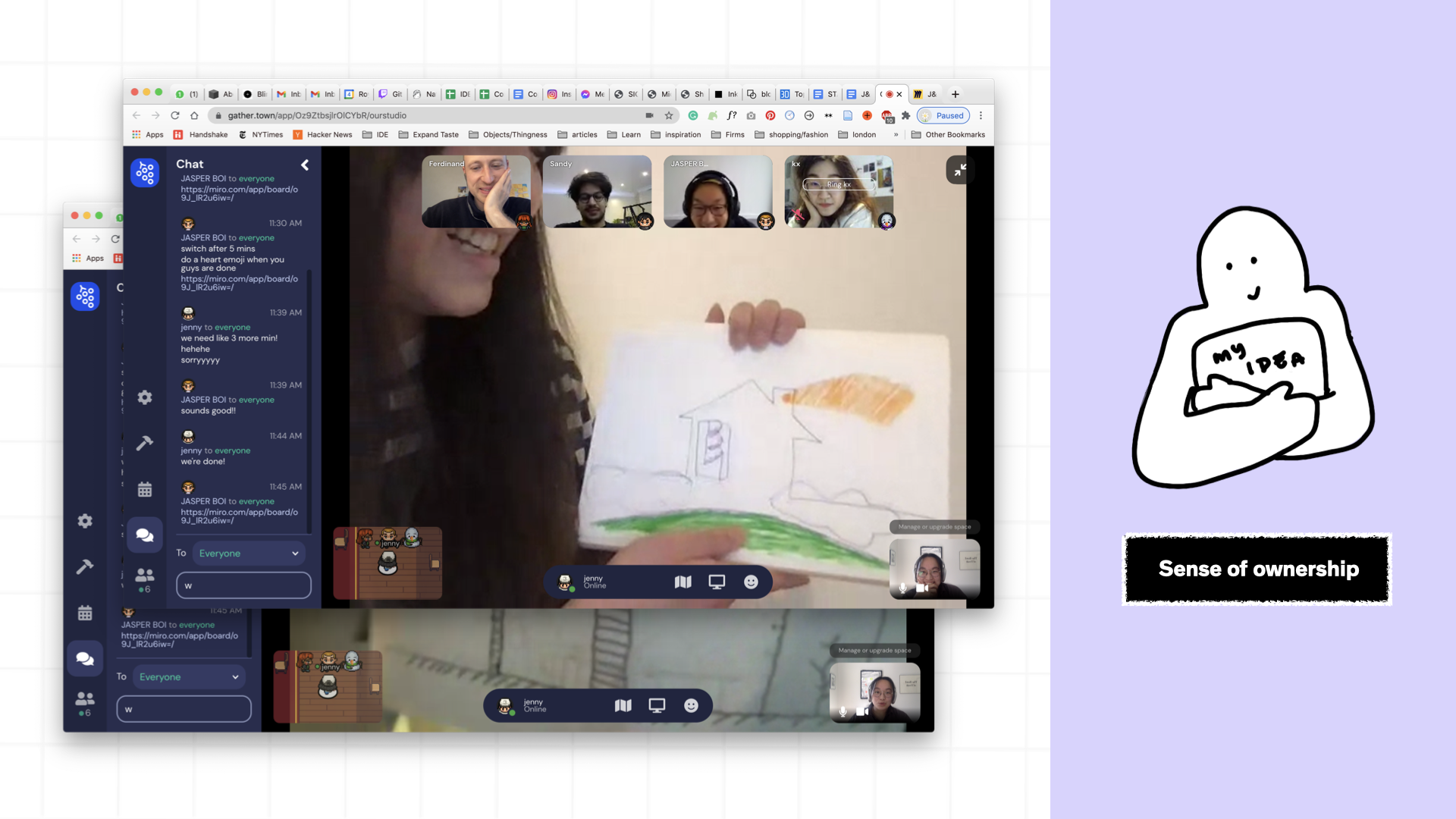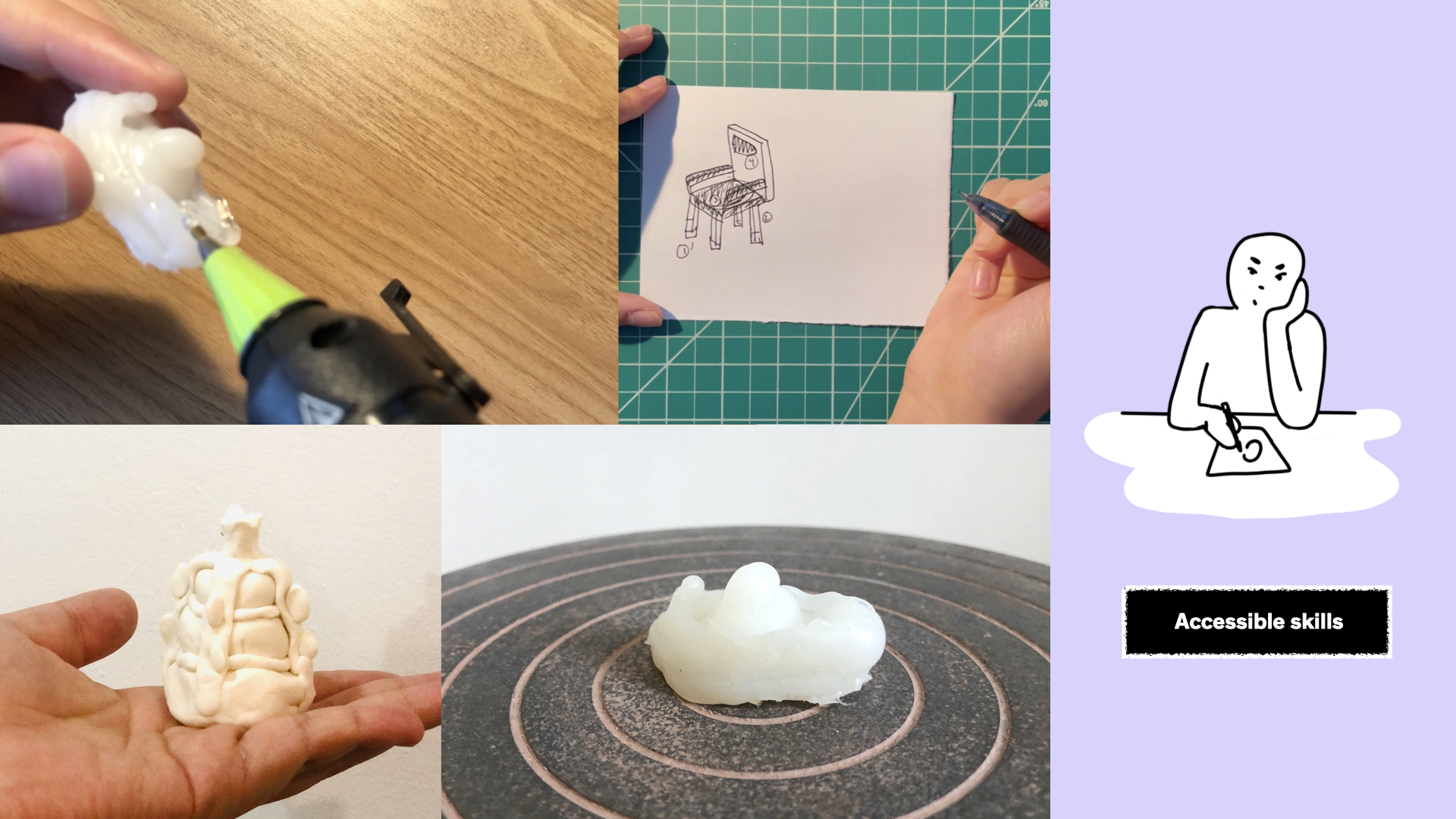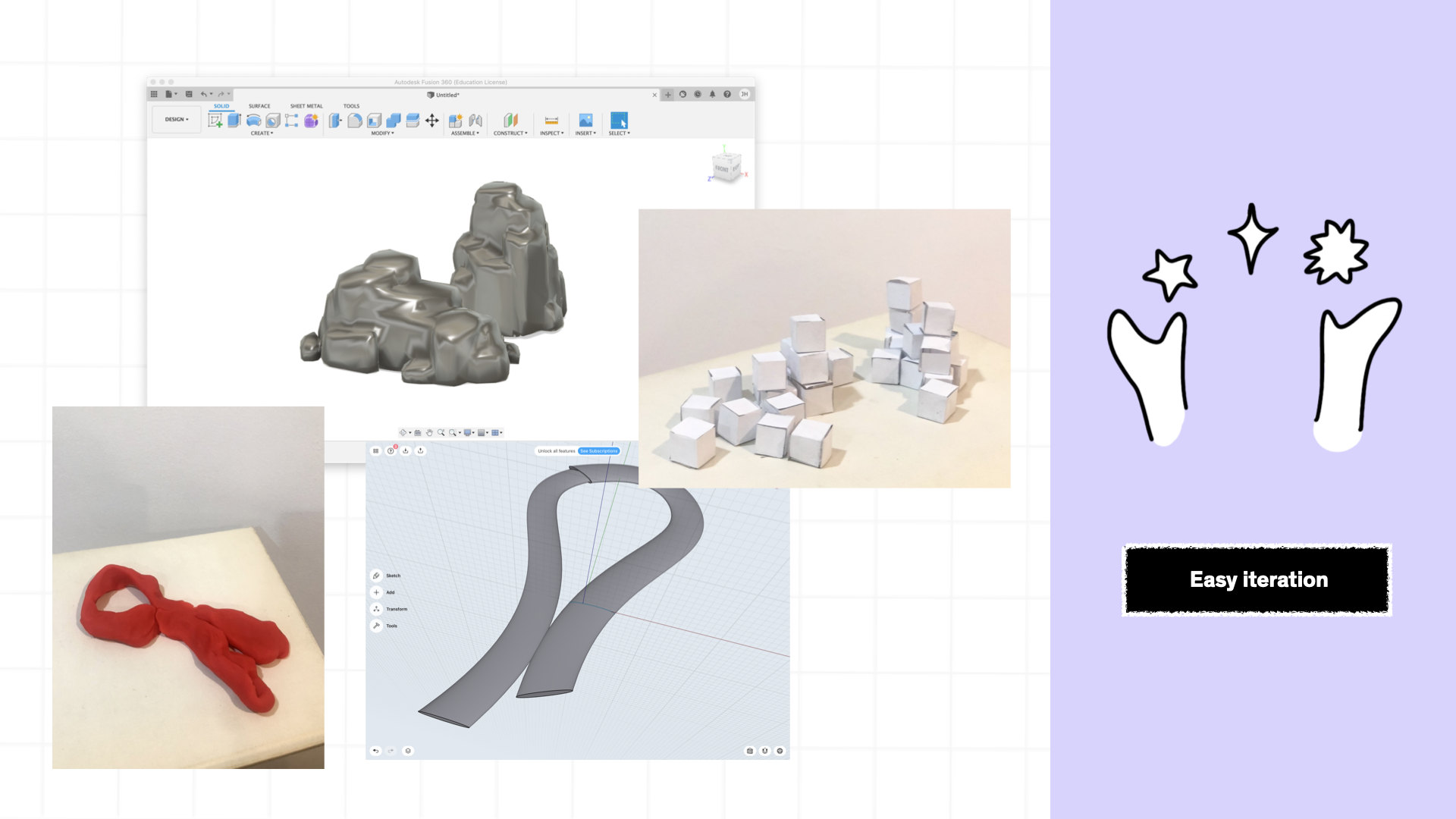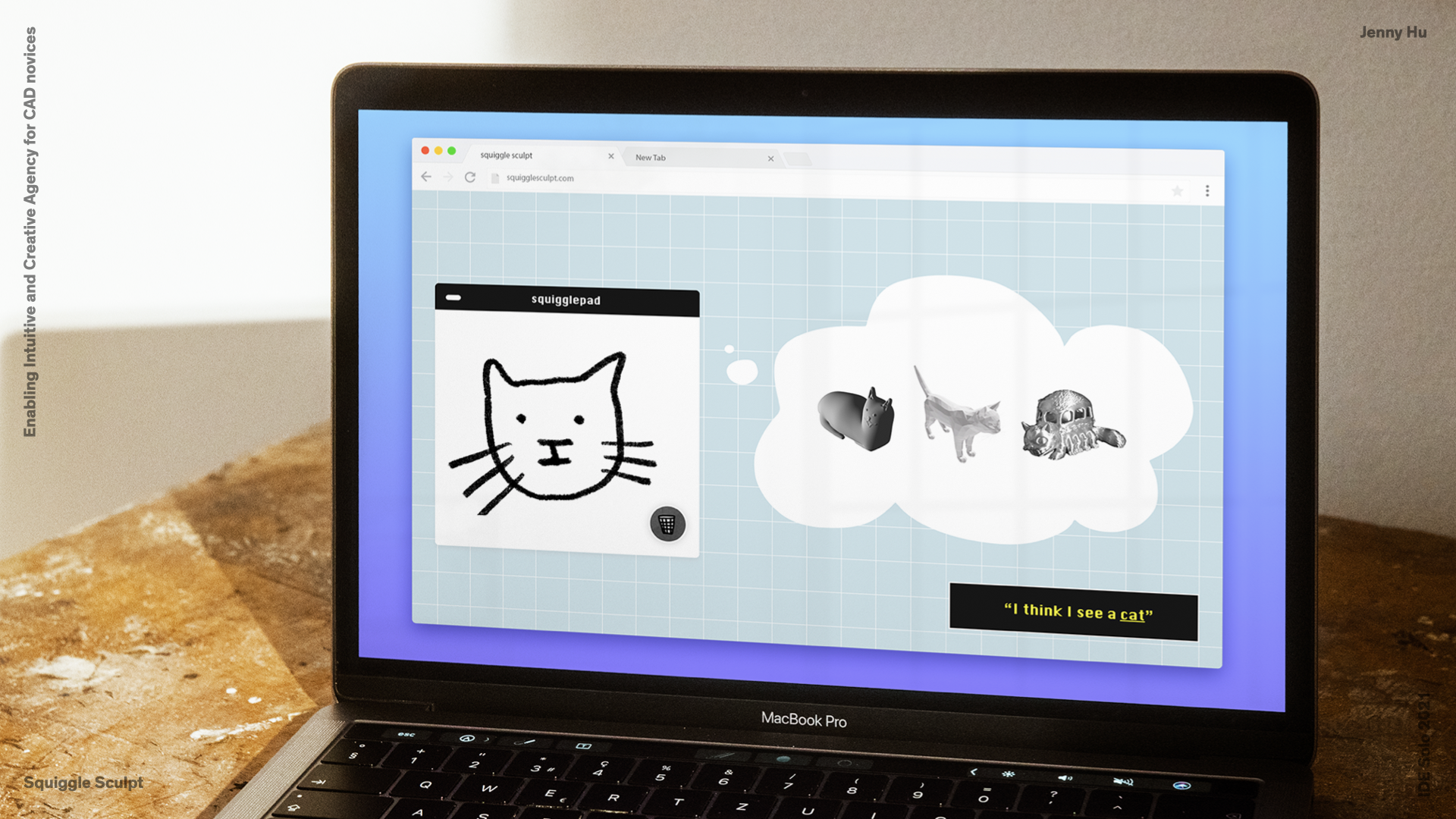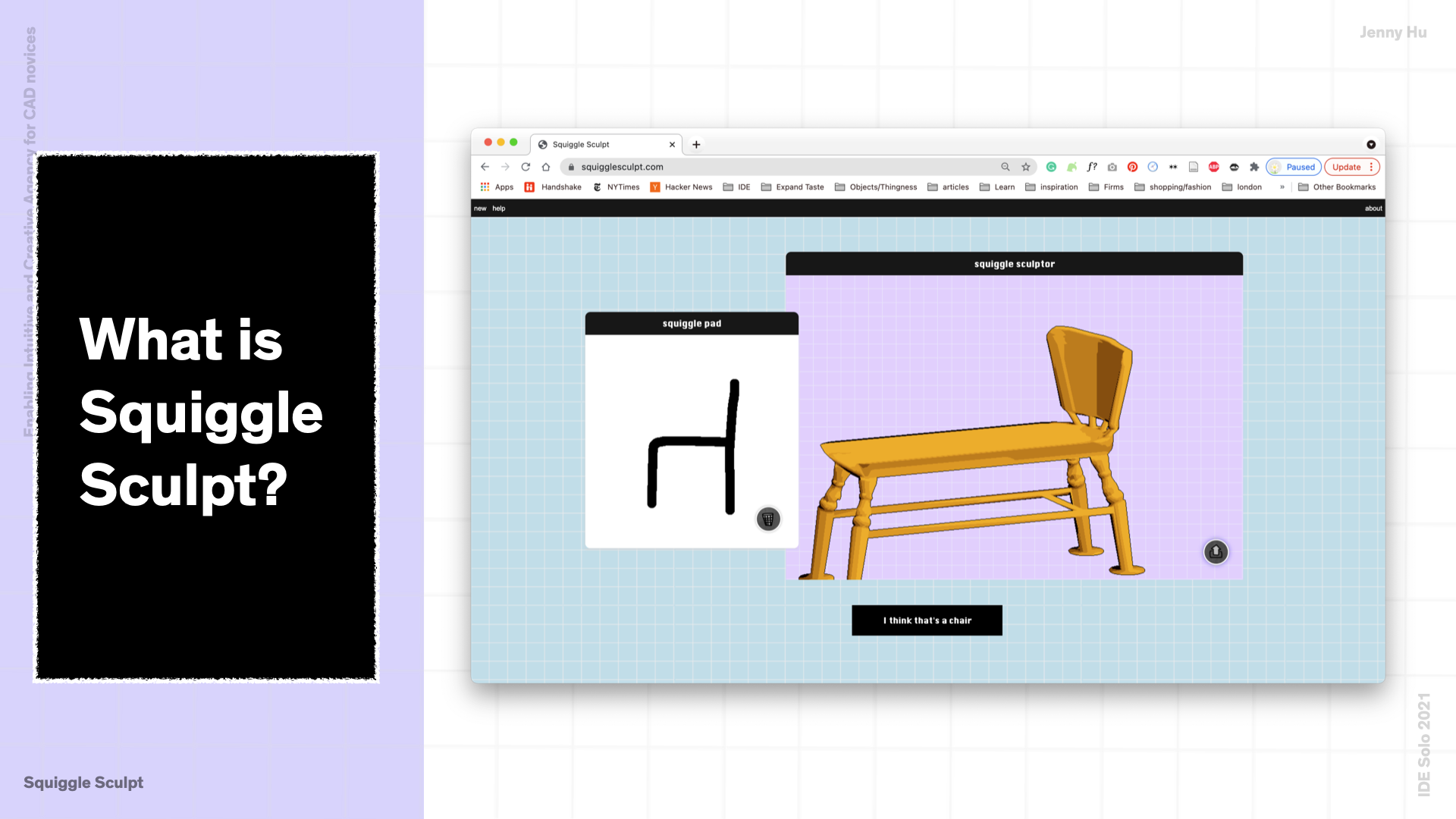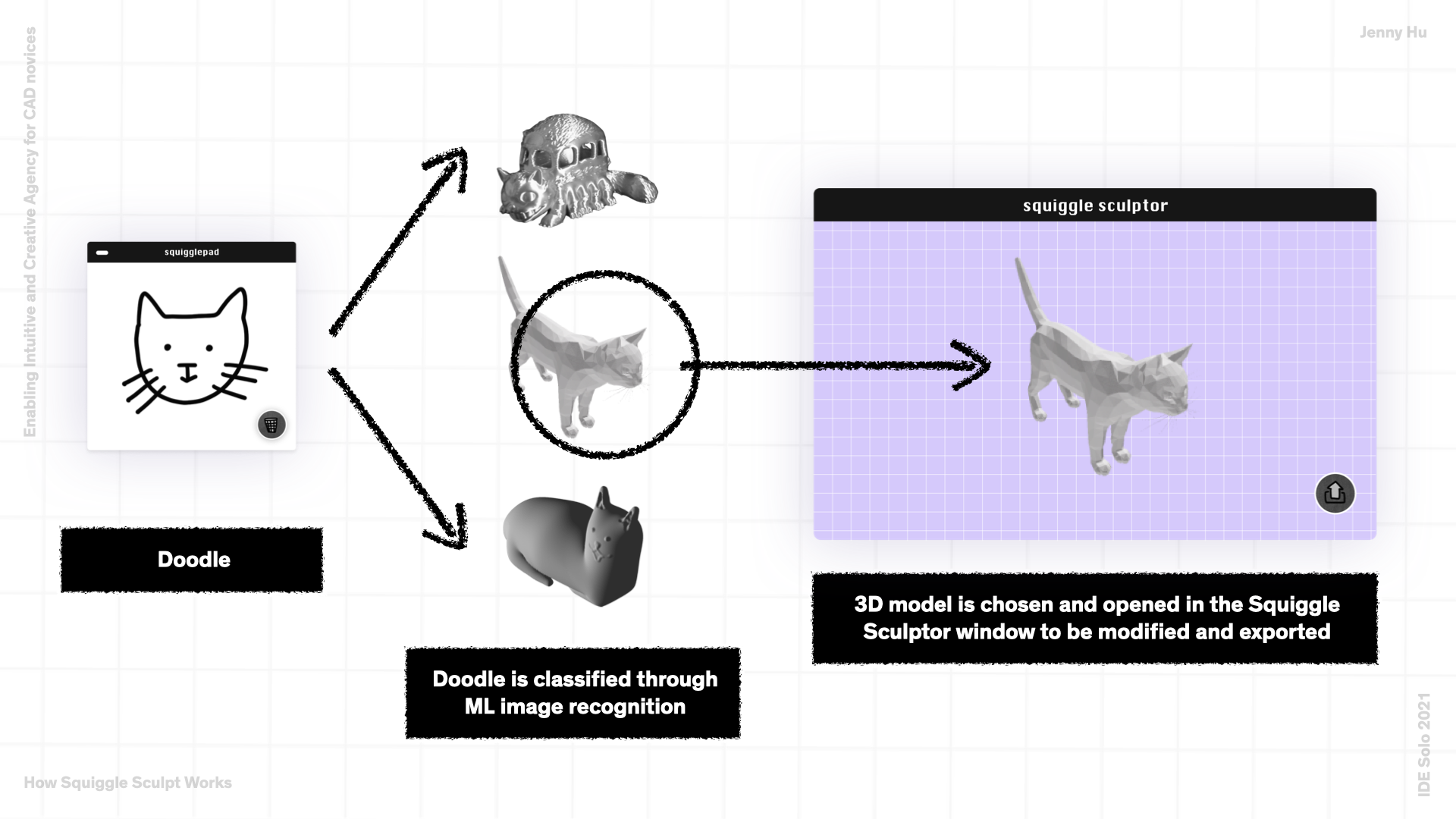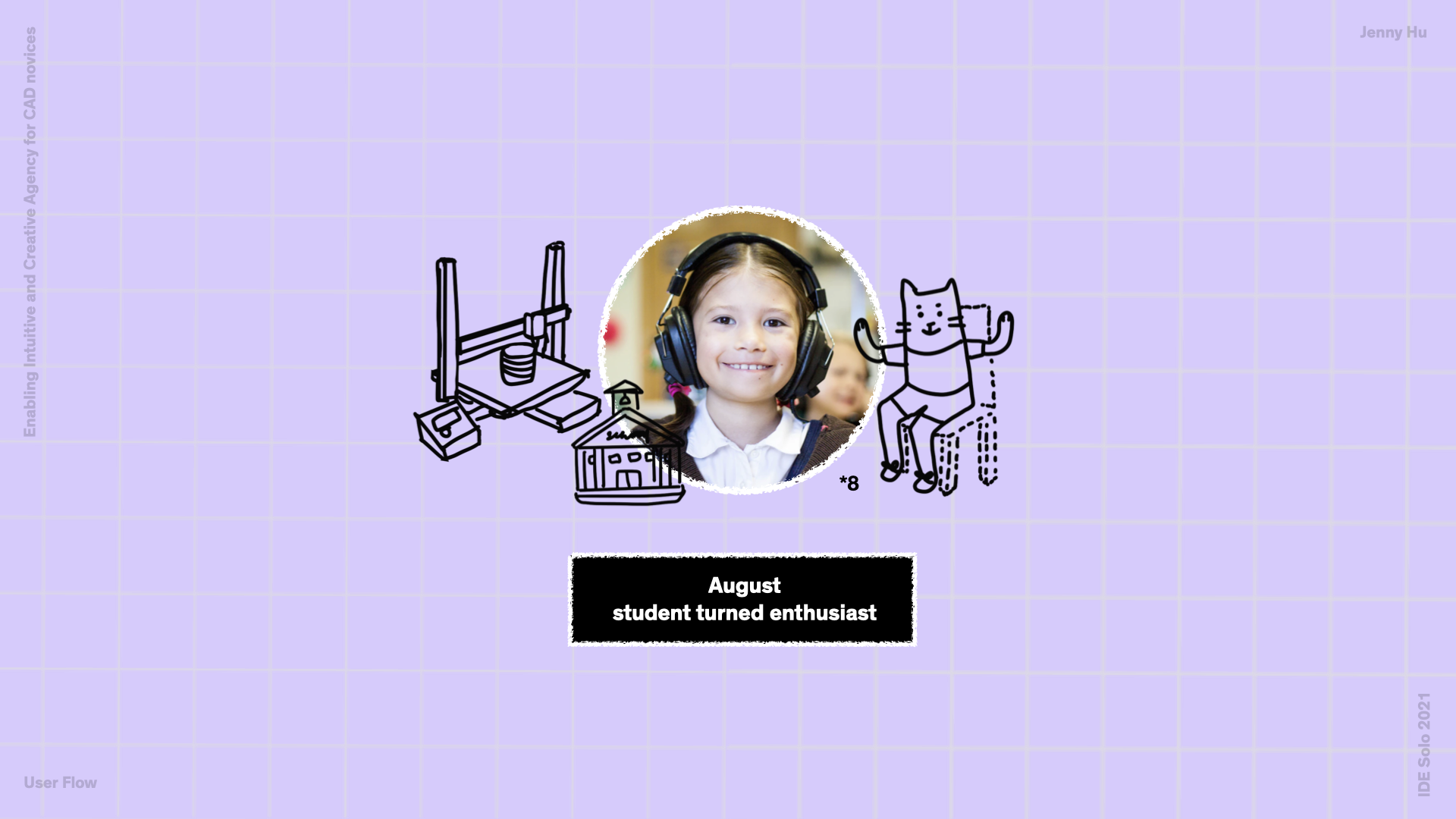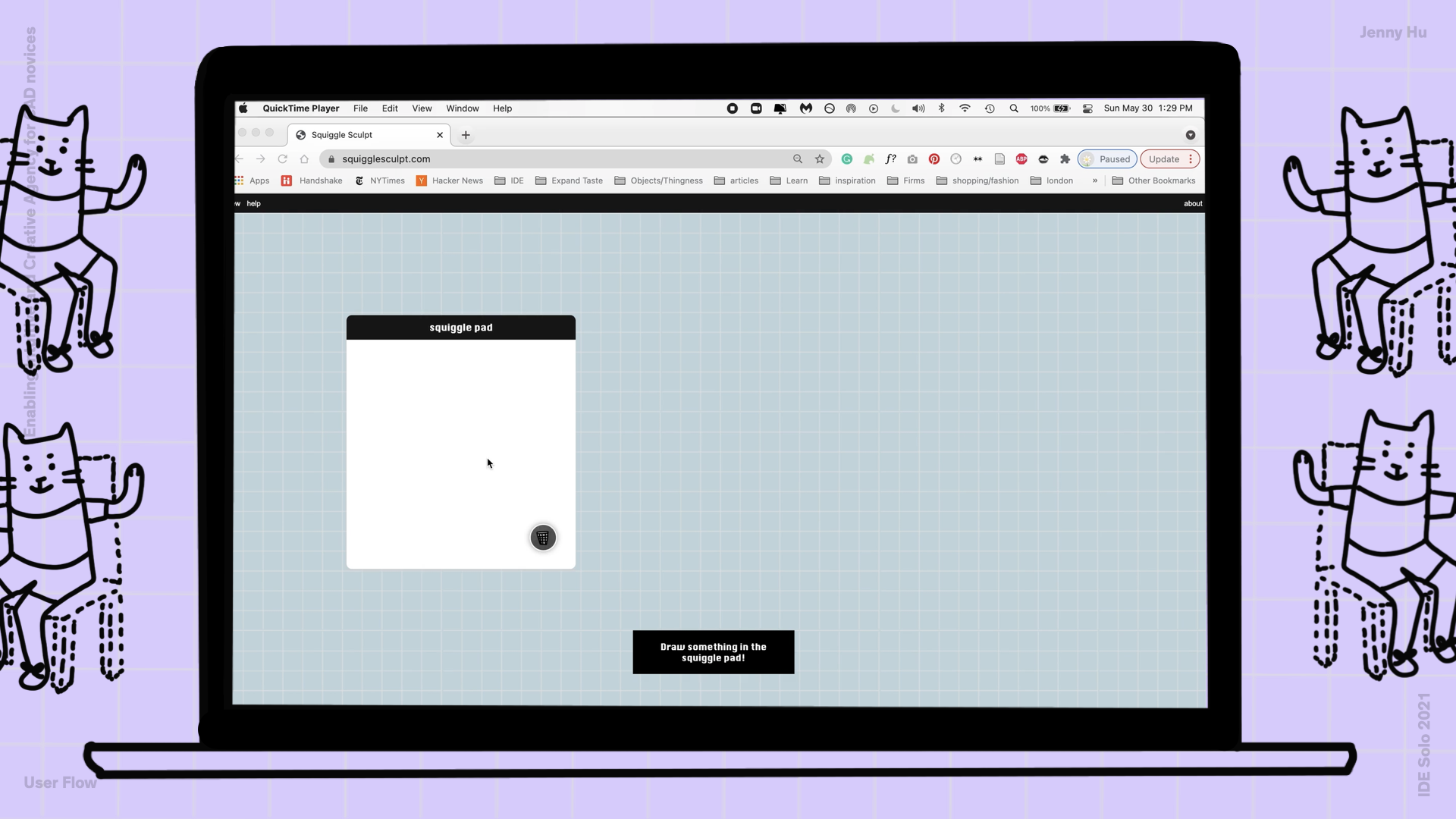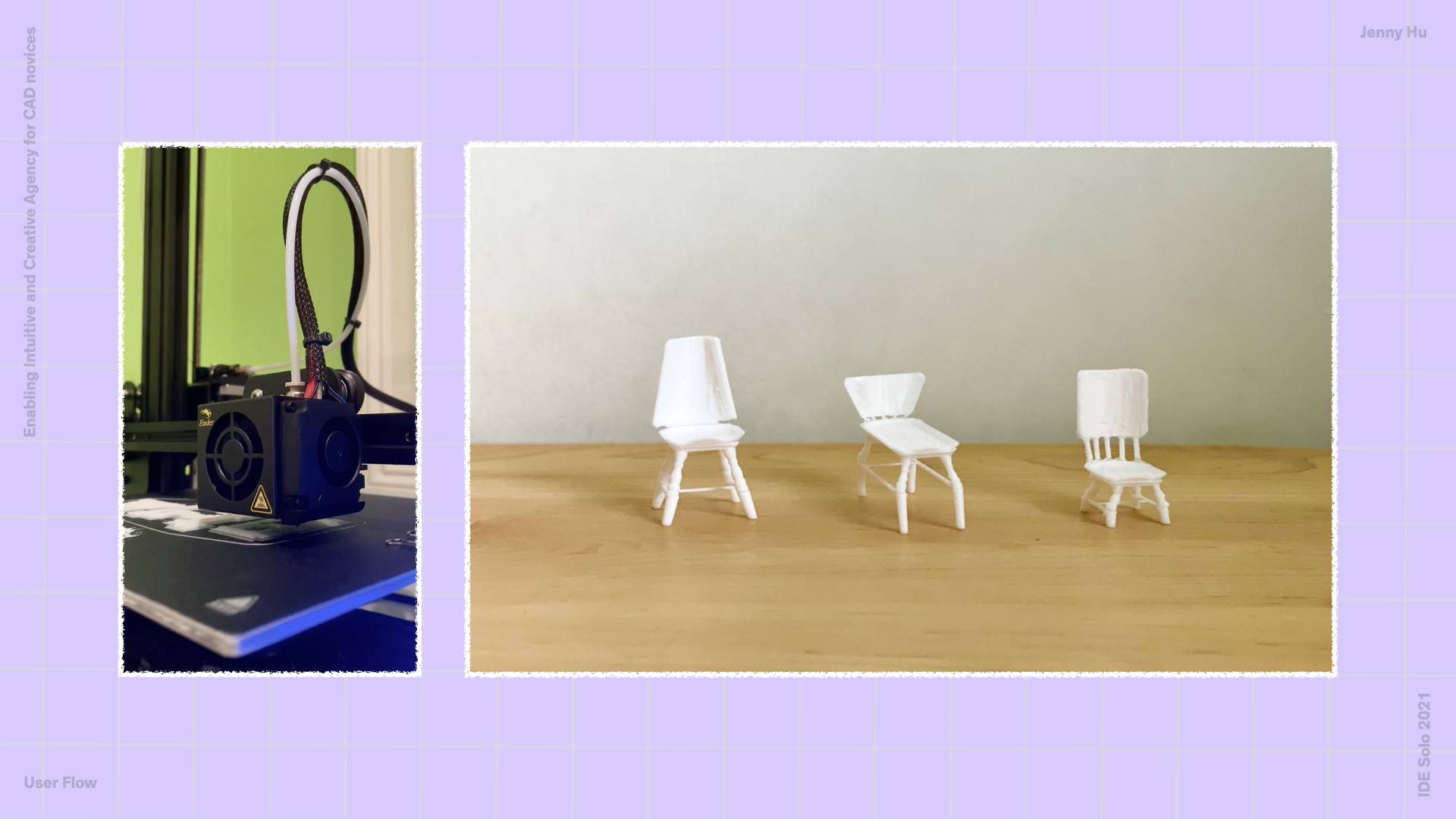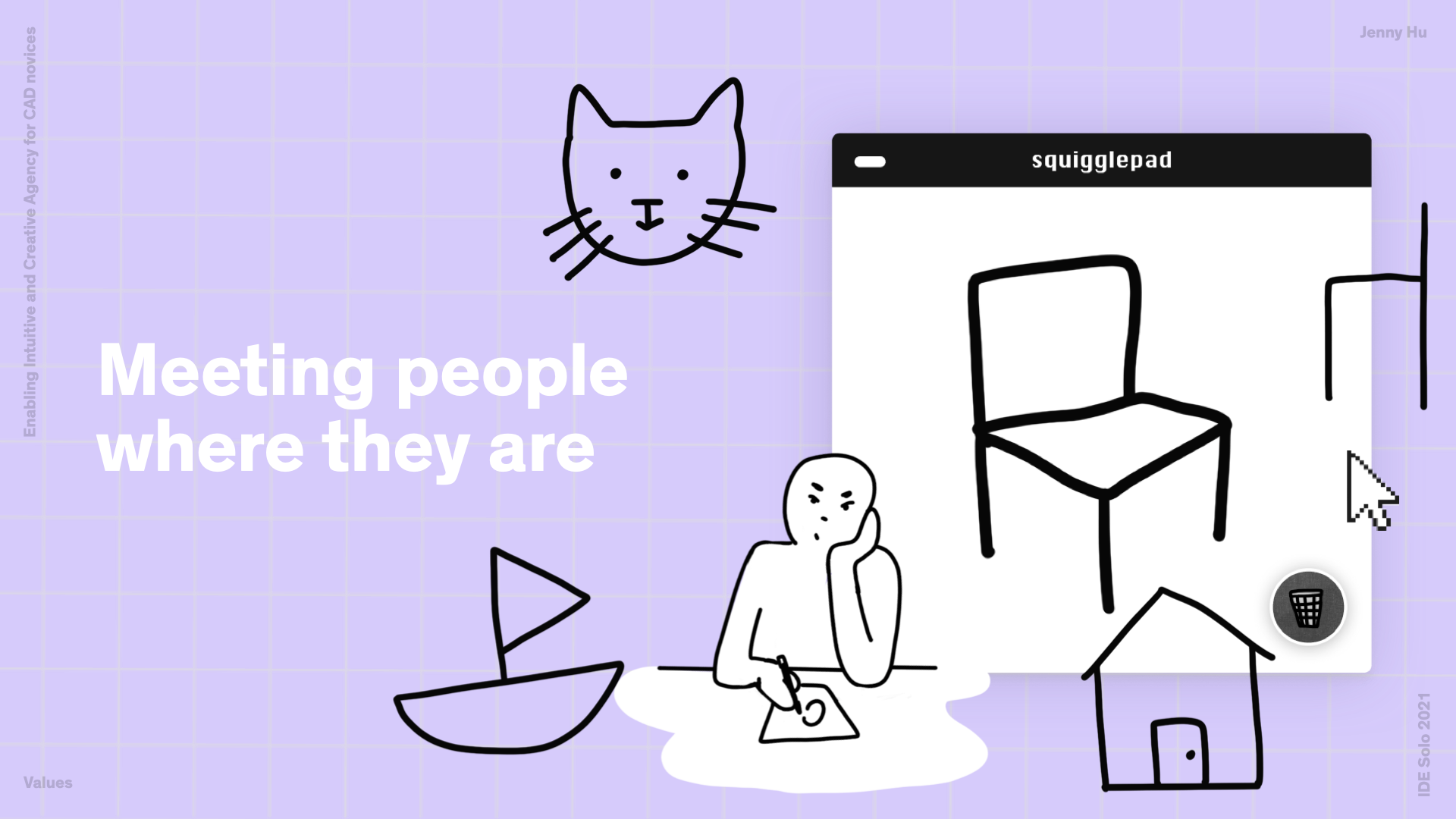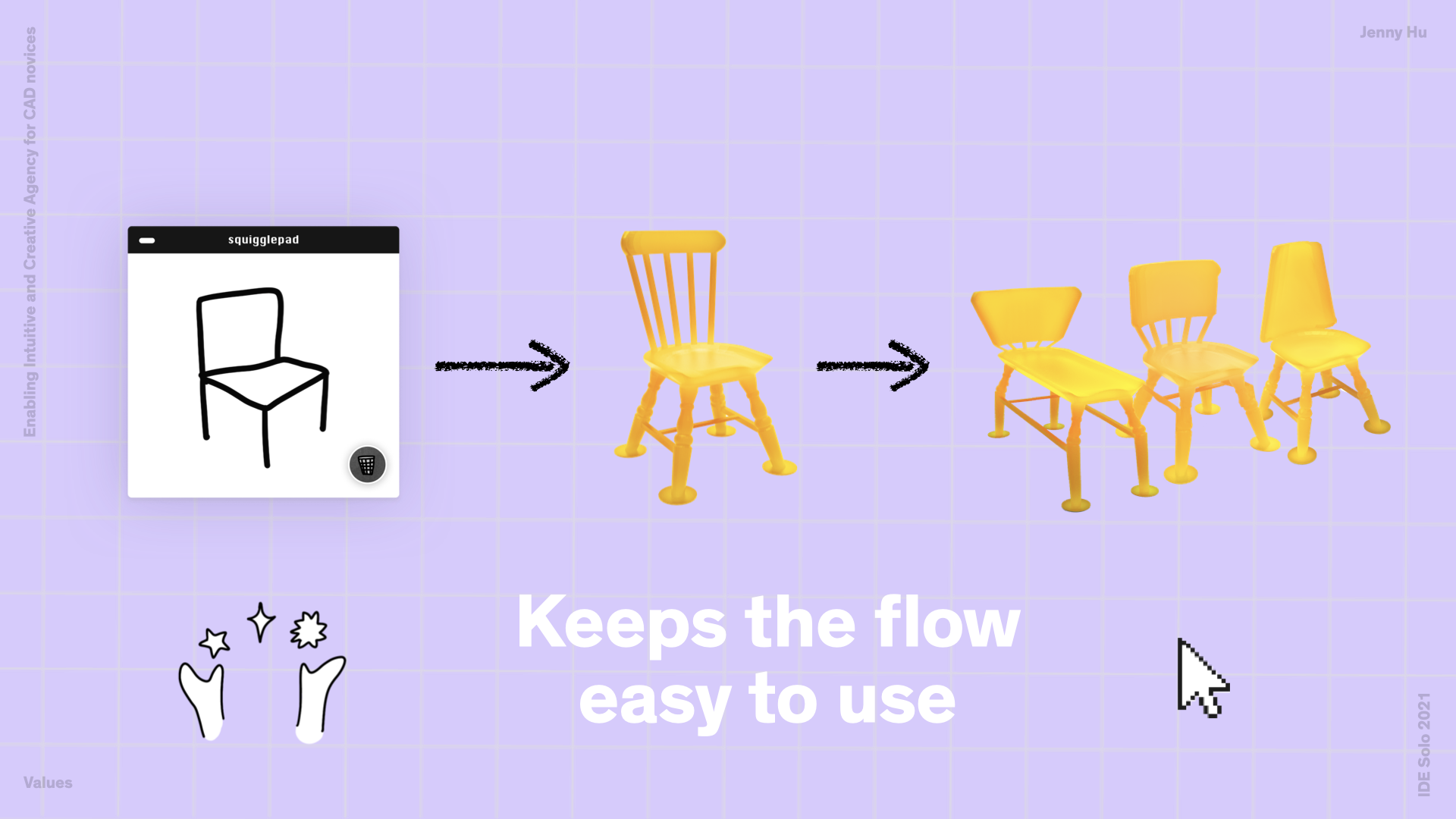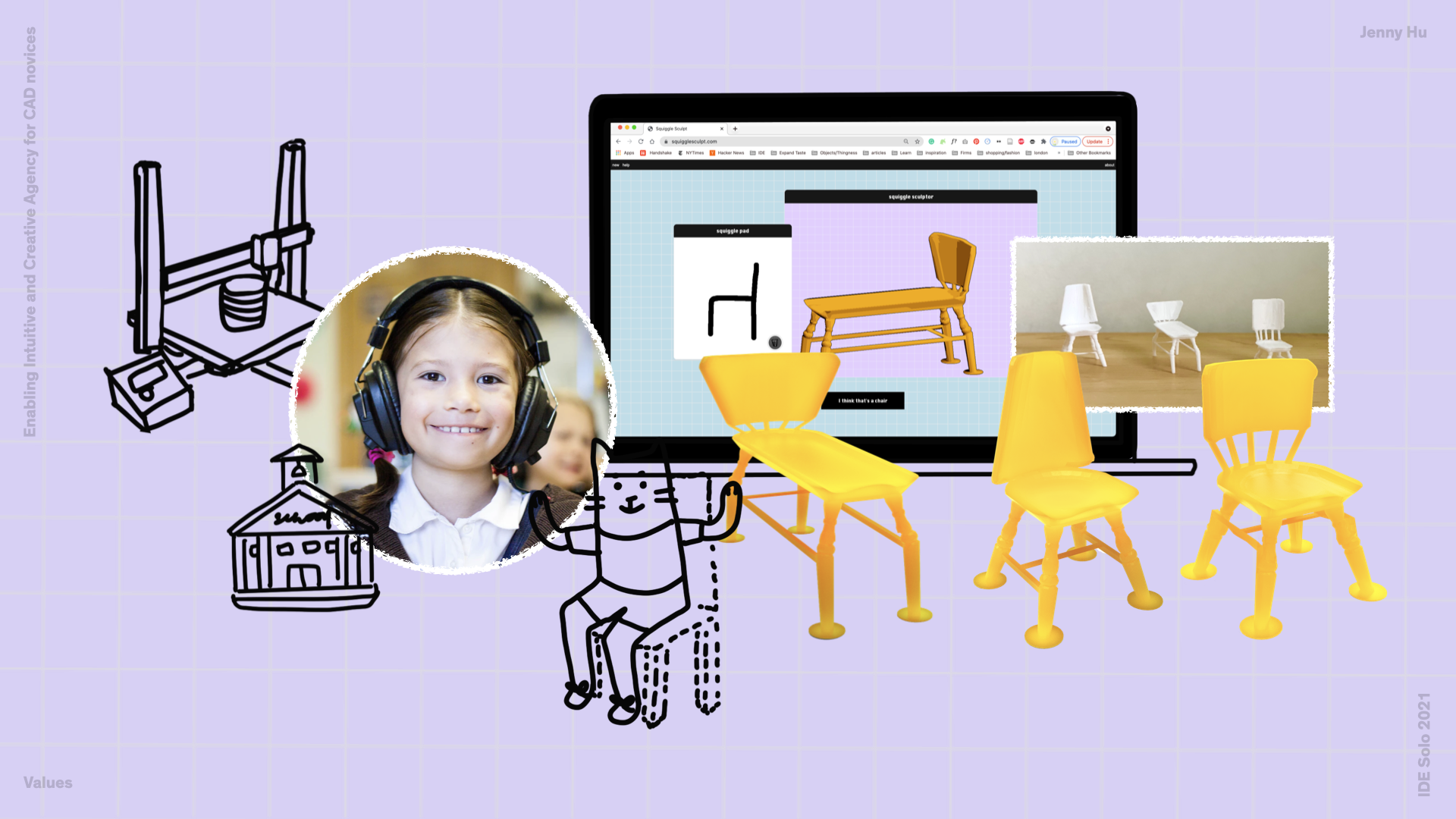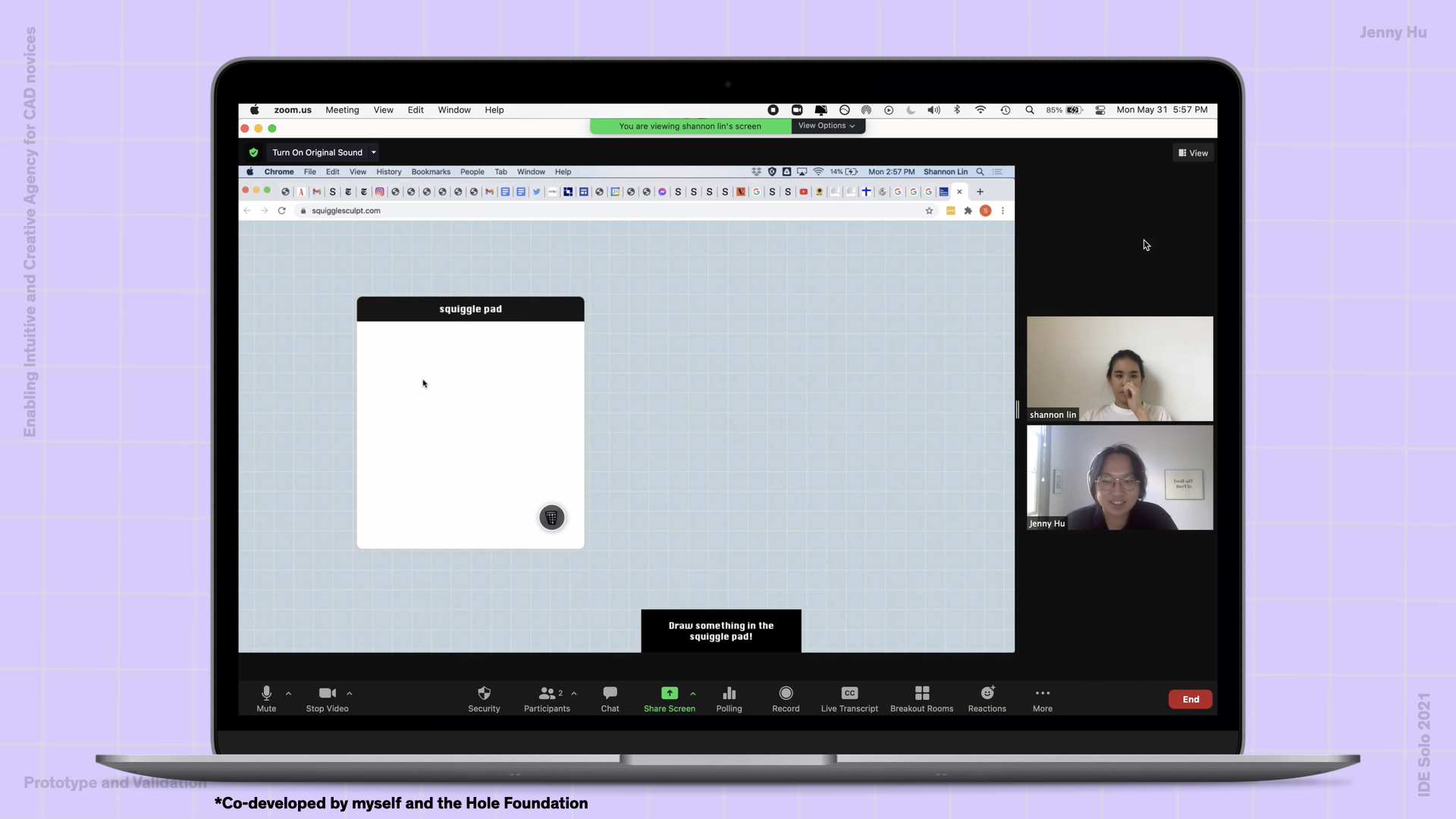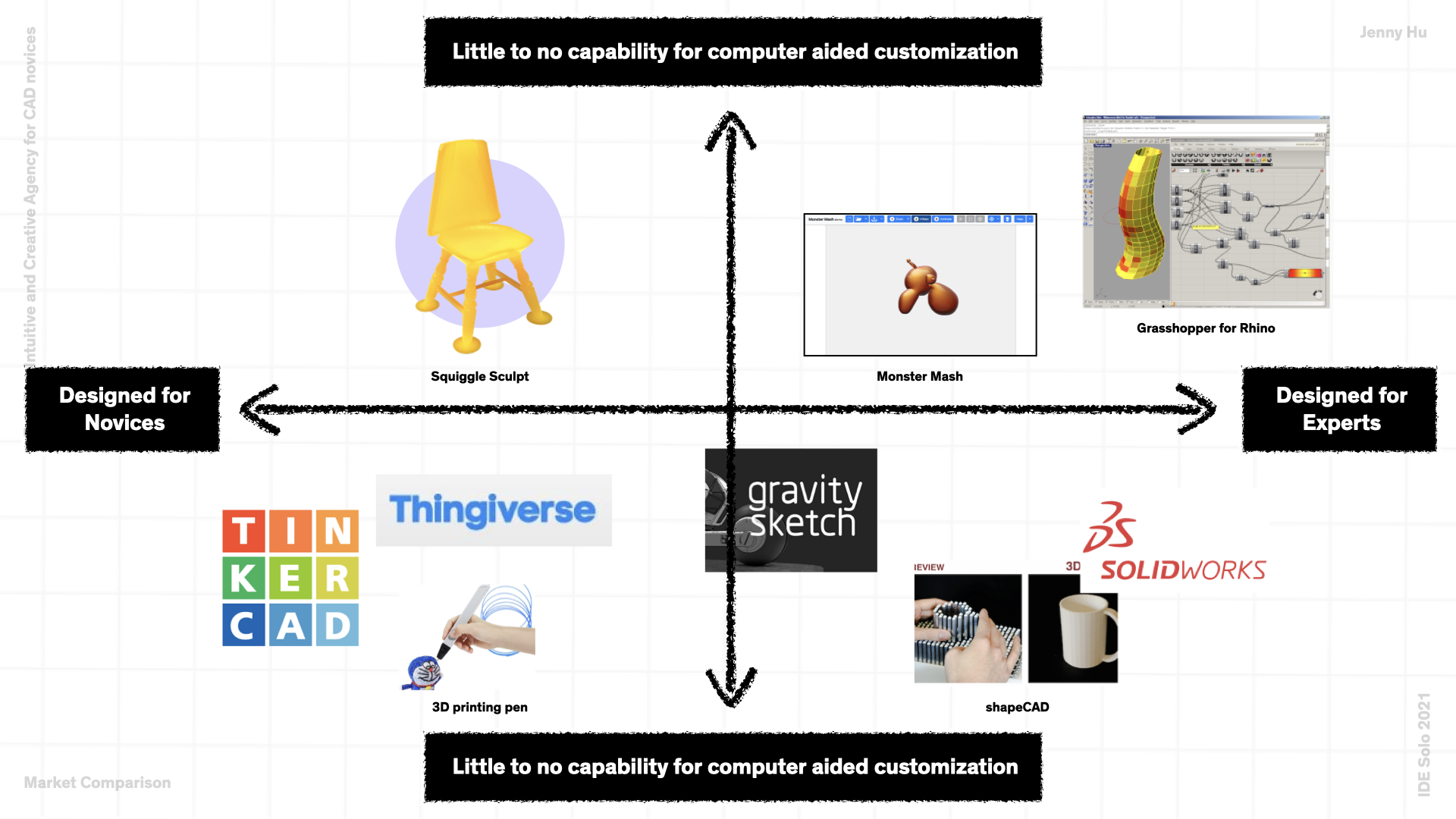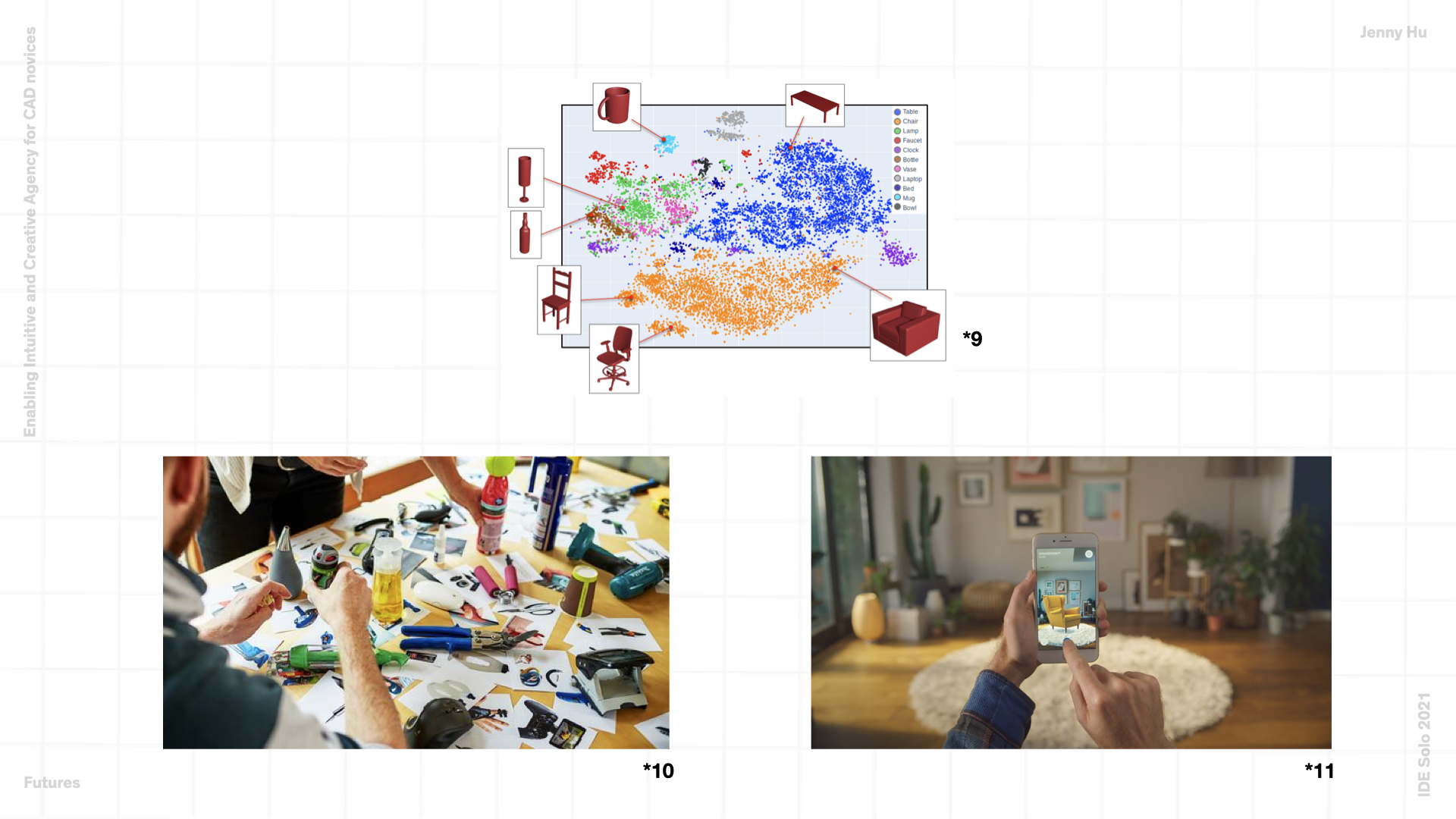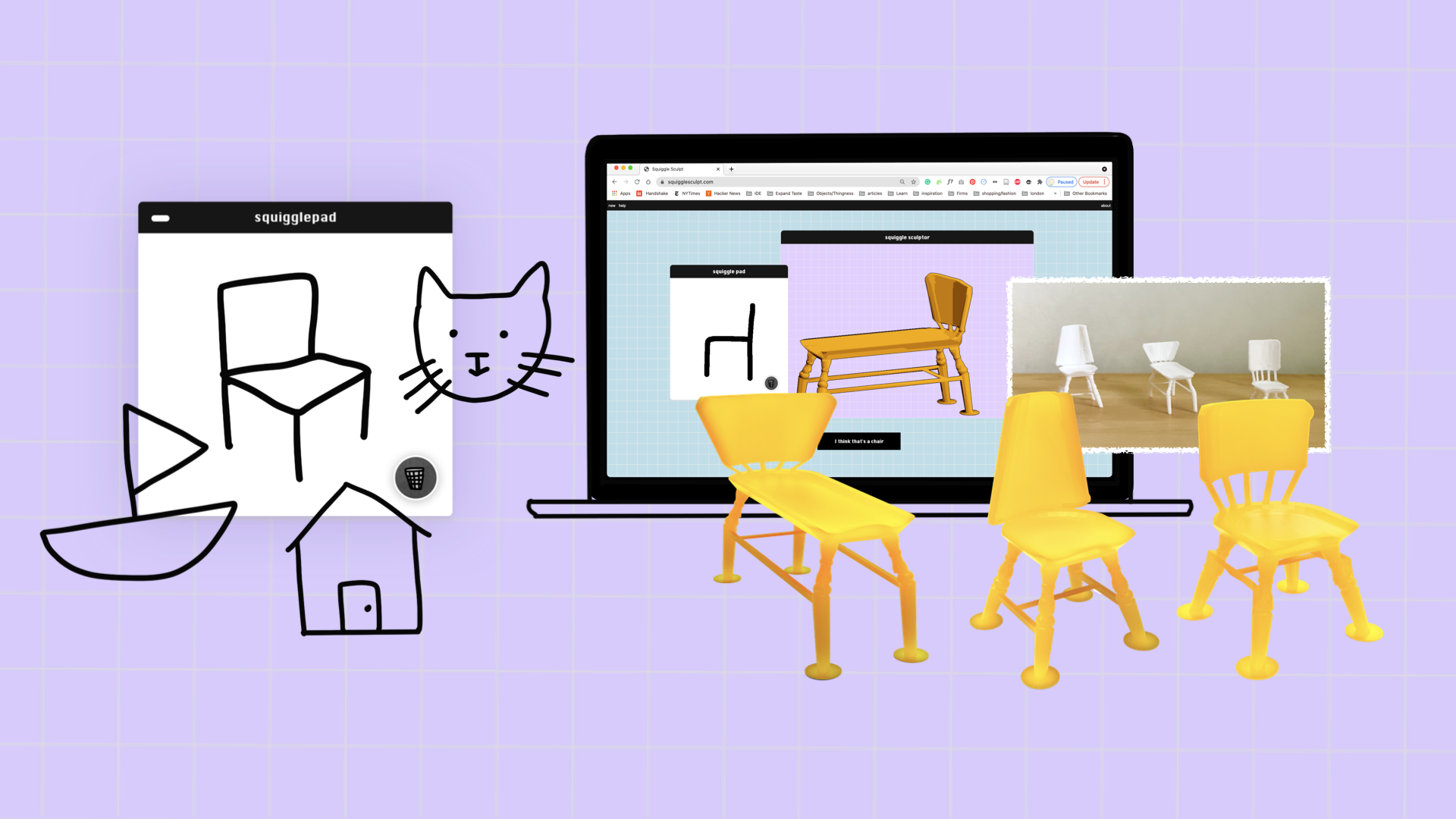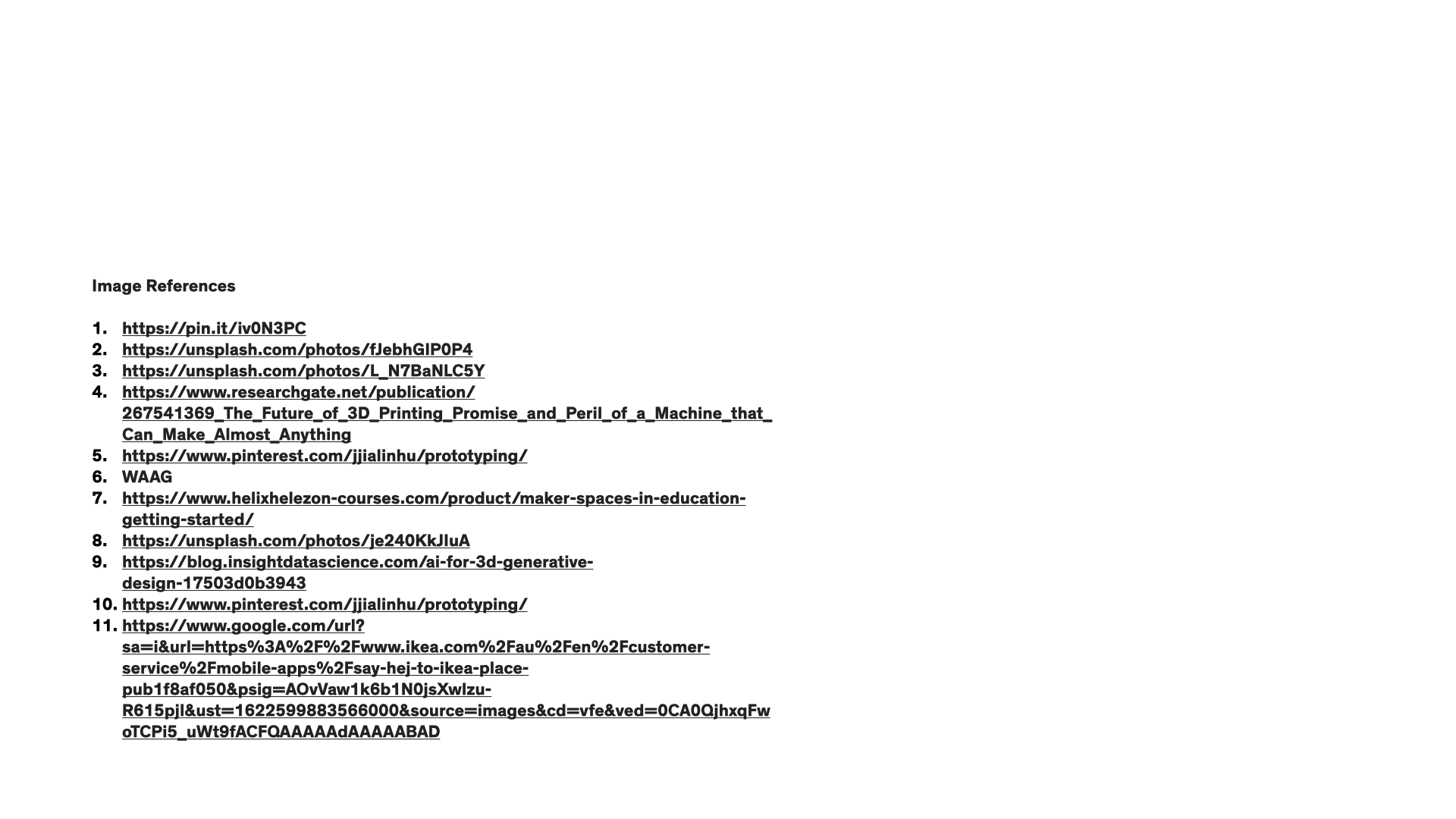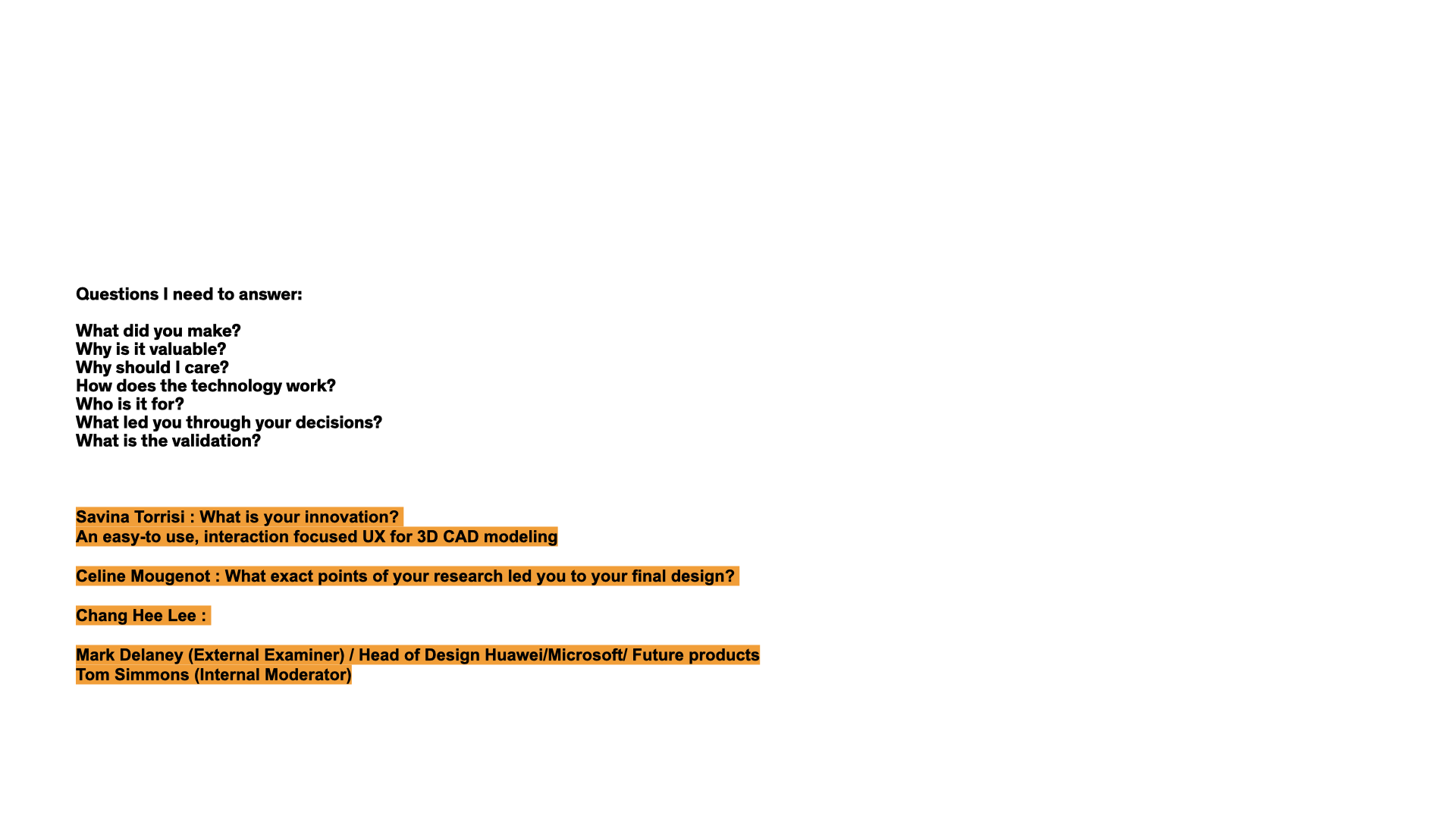Skills:
Research
Systems Design
Storytelling
Prototyping
UX
-
Javascript
Figma
MA/MSc Thesis
Collaborators
The hole foundation
2021
Squiggle Sculpt - Doodle based 3D CAD
Squiggle Sculpt is a fun, easy-to-use tool for novices to 3D model without the skill-sets of traditional 3D CAD and modeling programs. Through computer-aided processes, Squiggle Sculpt recognizes simple doodles to create a highly accessible, low-bar process for users to ideate forms for 3D printing.
Problem
Today, 3D modeling is still designed for experts with expert skill sets. The friction of CAD and investment needed to learn CAD leaves novice users out of the equation.
Goal
Design an accessible and approachable 3D modelling tool for novices to ideate and print 3D forms.





Background & Research
CAD and digital 3D designing are critical parts to the overlying dream of 3D printing: that anyone can make anything. However, any CAD user can tell you about their frustrations learning to 3D model. The process of digital 3D iteration is far from easy.
Research through expert interviews, literary analysis, and research experiments highlights one common story: students who come into the 3D world lose their excitement after encountering painful error messages in CAD programs. The result is choosing pre-made designs on websites such as Thingiverse, compromising the creative opportunity of 3D programs.
Insights
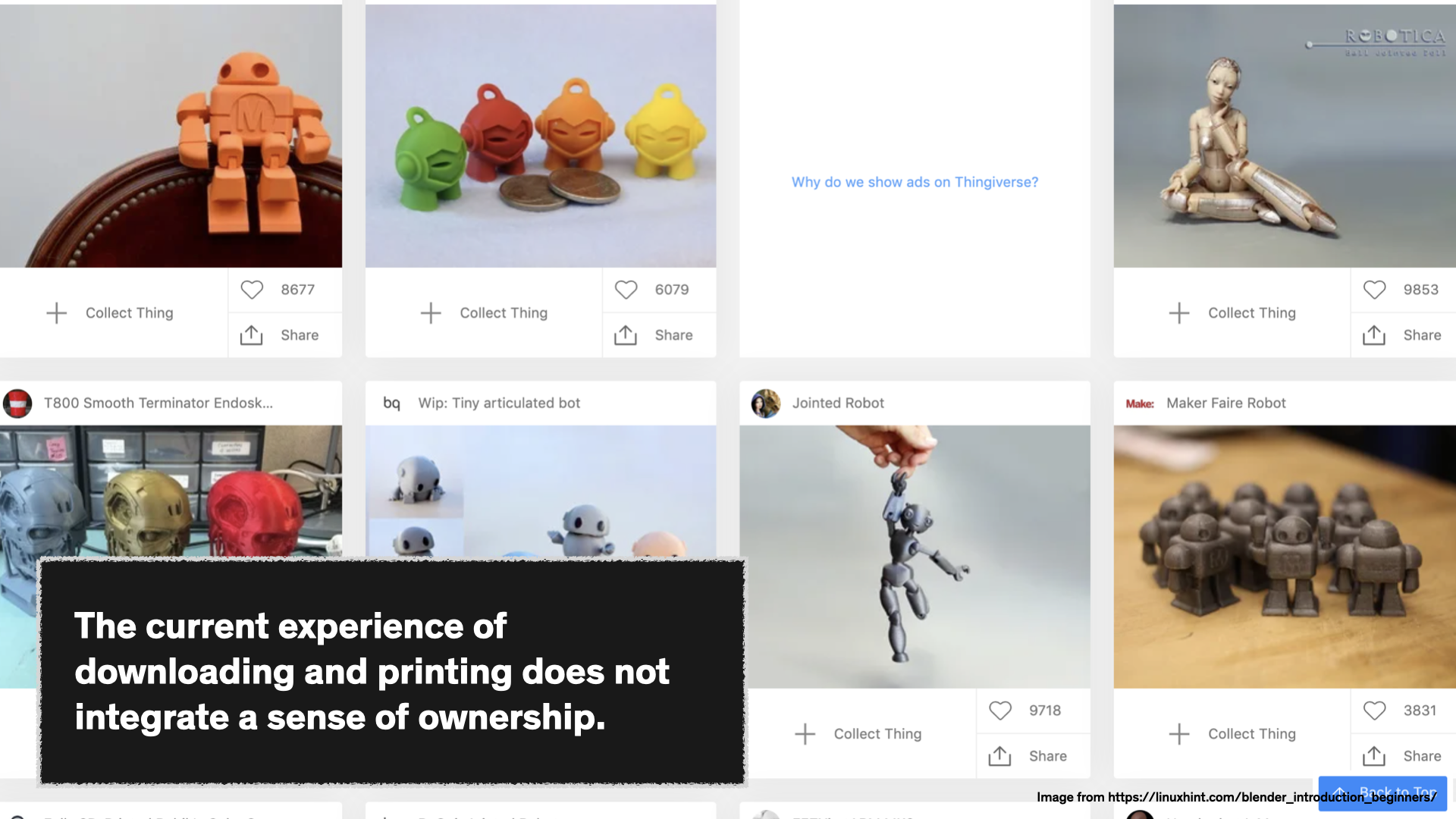
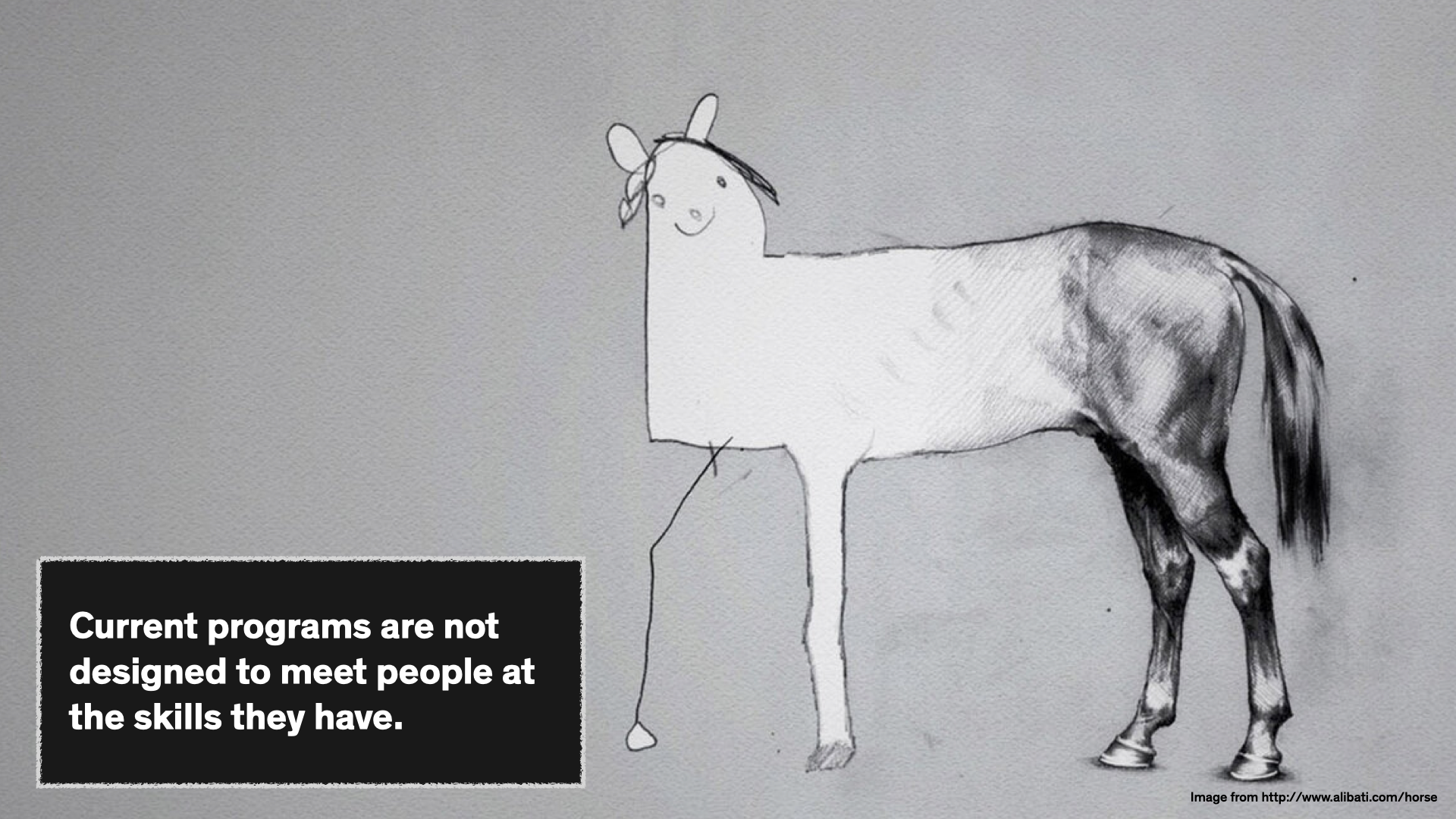
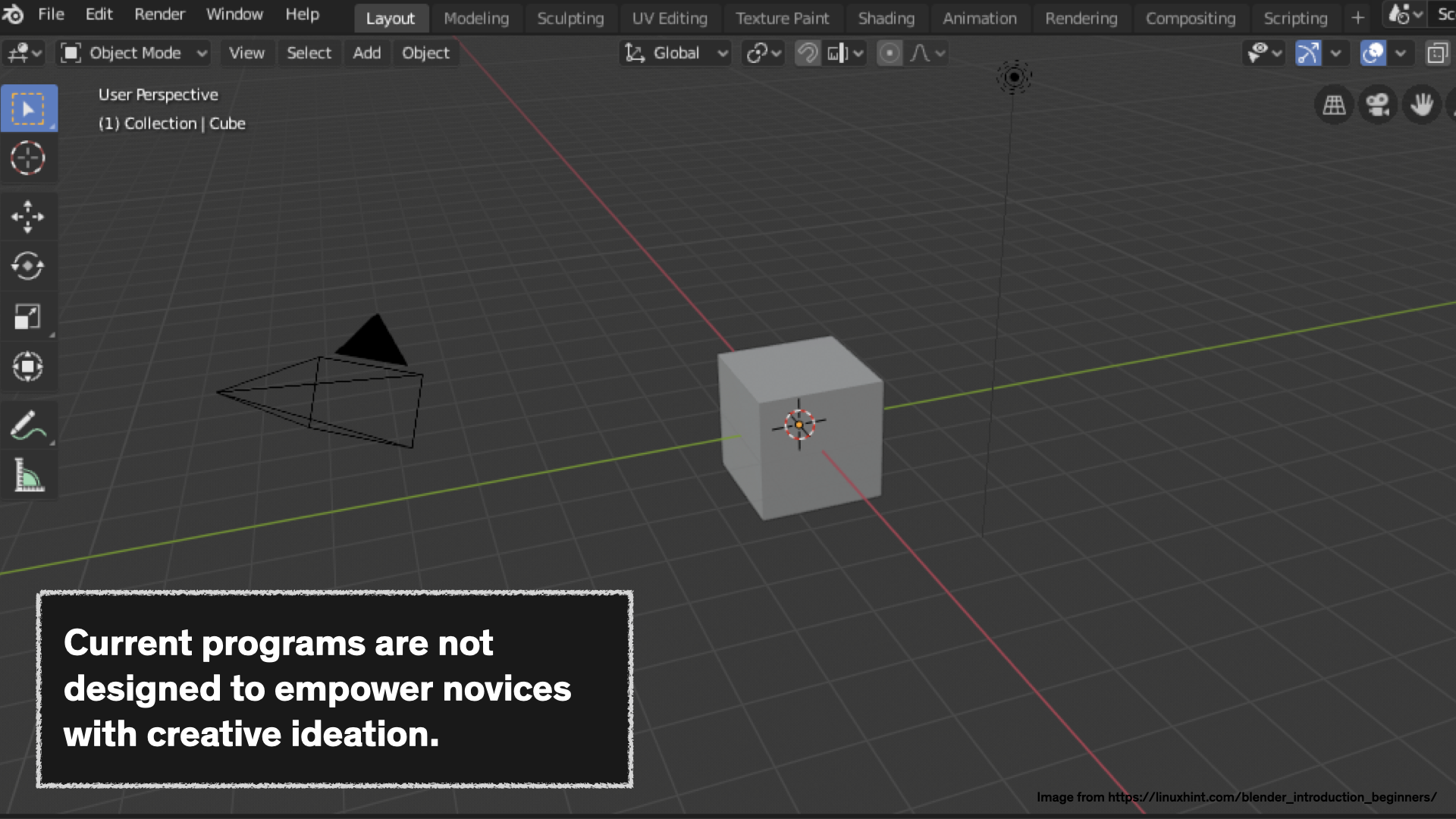
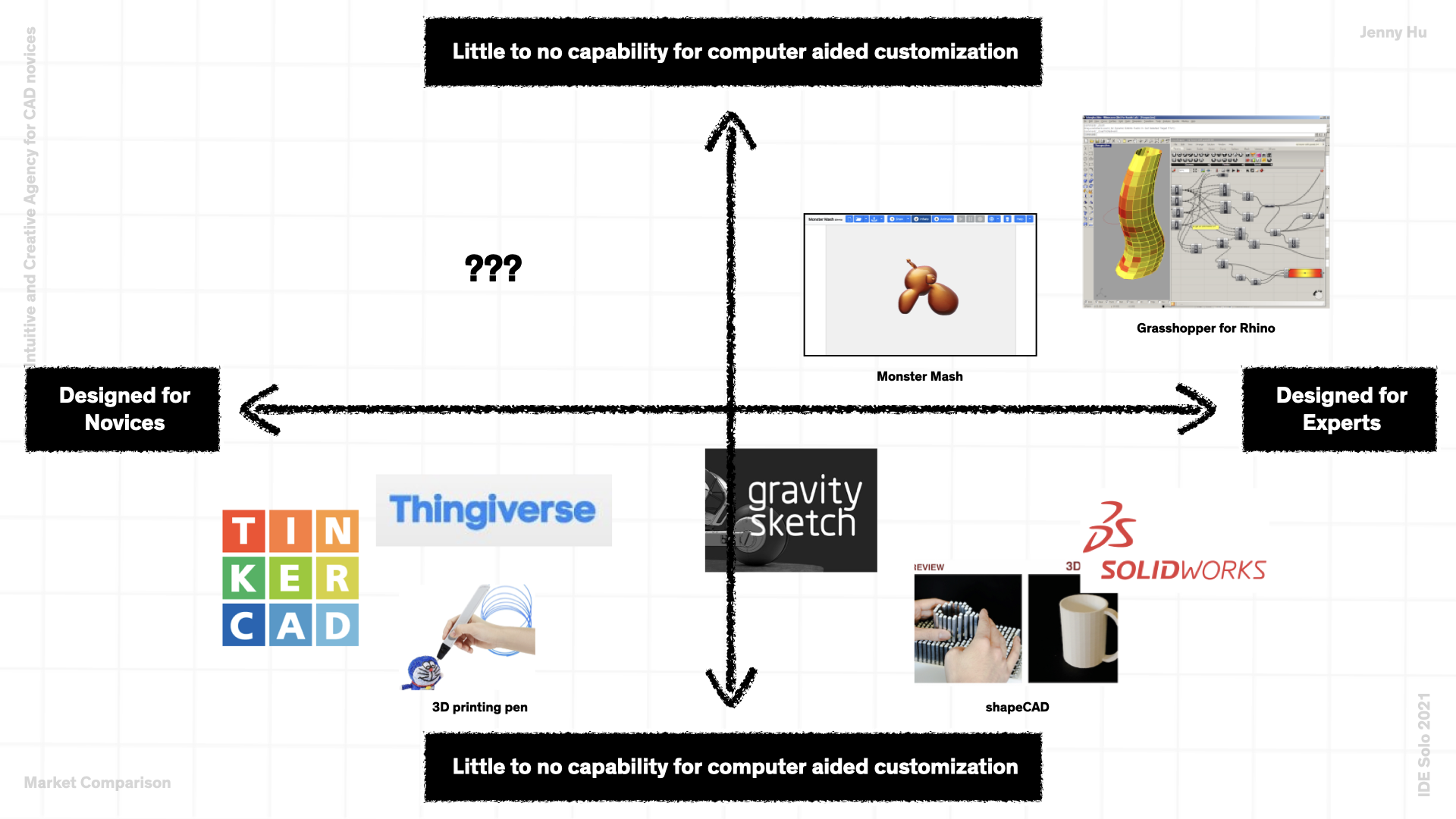
Research showcased that the current experience of using CAD for novices is lacking in 3 main factors: 1. Generating a sense of ownership. 2. Meeting novices at the skills they have. 3. Making ideation easy and immediate rather than starting as 'blank canvases'.
So, what if we could have a simple solution iterating within CAD quickly as a novice? A solution which promotes personalization and ownership through the entire process, meets novices where they are with the skills they have, and makes creative ideation fast and easy?
Squiggle Sculpt: a web-based CAD program that uses doodles to create and modify 3D files.
Through computer-aided processes, Squiggle Sculpt recognizes simple doodles to create a highly accessible, low-bar process for users to ideate forms for 3D printing. Here, you can see the example of something drawing and editing a chair.
How does it work?
Squiggle Sculpt recognizes users’ doodles through Machine Learning to surface relevant base models for users to build on. Through the Squiggle Sculptor, users can intuitively modify these designs through simple circle and drag interactions to then create their own unique forms ready to export and print.
Squiggle Sculpt’s working prototype exists at squigglesculpt.com. I suggest using a chair, a cat, a house, or boat as examples.
These three 3D prints to the left were generated designs from the same base model in Squiggle Sculpt. All models created in Squiggle Sculpt can be exported as STL files ready to 3D print.
Squiggle Sculpt on a high level represents a gap and opportunity for 3D CAD. Augmented 3D designing for novices offers a glimpse into future potentials of computer-assistance. For example, using ML to create latent space vectors for different object categories can enable novel, generative forms which can even placed or contextualized in AR.
The hope being that 3D digital creation should feel less like solving a broken pipe and more like planting a flower and helping it grow.
Thesis Presentation
